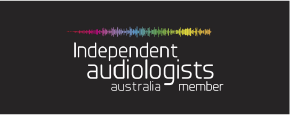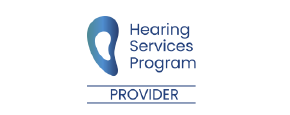Are you looking for a hearing test in Margate?
Are you having difficulty communicating? Our expert audiologists at Hearing Help can help improve your hearing clarity. Book your consultation today and reconnect with the sounds and people you love!
Hearing Test in Margate Brisbane
Are you looking for Hearing Test in Margate Brisbane? We are conveniently located within the Newport Physio and Health clinic at Newport Marketplace.We offer comprehensive hearing tests conducted by experienced audiologists. These assessments evaluate an individual’s auditory system, detecting hearing thresholds and identifying potential issues such as earwax buildup or infections. With various types of tests available, including pure-tone audiometry and speech audiometry, a personalised approach is taken to understand each client’s unique hearing needs. The team at Hearing Help is dedicated to providing tailored solutions and guiding clients through the testing process. By exploring the process and benefits of hearing tests, individuals can take the first step towards improving their overall hearing health.
About Hearing Help
At the heart of every hearing test in Margate, Brisbane, is Hearing Help, a reputable company dedicated to providing professional hearing care and exceptional service to its clients. As a locally-owned and operated business, Hearing Help has a deep understanding of the community’s needs and strives to deliver personalised attention to each individual who walks through their doors.
With a team of highly trained and experienced audiologists, Hearing Help is equipped to address a wide range of hearing concerns, from simple hearing assessments to more complex hearing rehabilitation. Their comprehensive services include hearing tests, hearing aid fittings, and ongoing support to ensure optimal hearing outcomes.

Hearing Help’s commitment to staying at the forefront of the latest advancements in hearing technology and best practices in audiology ensures their clients receive the highest level of care possible. Their approach is centred around building long-term relationships with their clients, taking the time to understand their unique needs, and providing tailored solutions to improve their overall quality of life.
Why Choose Hearing Help?
Hearing Help, an independent audiology practice, provides quality hearing services in the surrounding areas of Newport 4020, Brisbane. Erini
Importance of hearing health and regular hearing tests
Maintaining good hearing health is crucial for overall well-being, as hearing loss can significantly impact an individual’s quality of life, social interactions, and even mental health. Regular hearing tests play a vital role in identifying hearing issues early on, allowing for timely interventions and potentially preventing further deterioration. Moreover, hearing tests can detect earwax buildup, infections, and other conditions that, if left untreated, could lead to permanent damage. By incorporating regular hearing tests into one’s health routine, individuals can proactively safeguard their hearing and ensure they continue to engage fully with their surroundings, fostering a better overall quality of life.
What is a Hearing Test?
Typically, a comprehensive assessment of an individual’s auditory system, a hearing test evaluates the ability to detect, process, and interpret various sounds, providing valuable insight into overall hearing function. It is designed to identify any hearing loss or abnormalities in the auditory system, allowing for prompt intervention and treatment. A hearing test is usually conducted by an audiologist or hearing specialist in a soundproof room to minimise external distractions.
During the test, the individual’s responses to different sounds and frequencies are recorded and analysed to determine their hearing threshold, or the minimum sound level that can be detected. The results are then used to create an audiogram, a graphical representation of the individual’s hearing ability. The information gathered from a hearing test can help diagnose hearing-related conditions, guide treatment decisions, and provide a baseline for future hearing assessments. By evaluating an individual’s hearing function, a hearing test plays a crucial role in maintaining their overall auditory health.
Types of Hearing Tests
Several types of assessments are employed to evaluate an individual’s auditory function, each designed to test specific aspects of hearing and provide a comprehensive understanding of the auditory system. Pure-tone audiometry is a fundamental assessment that measures an individual’s ability to detect sounds at various frequencies. Speech audiometry, on the other hand, evaluates the ability to understand and repeat words in a quiet or noisy environment. Middle ear function tests, such as tympanometry and acoustic reflex testing, assess the movement and reflexes of the eardrum and middle ear muscles.
Additional specialised assessments include otoacoustic emission testing (OAEs) and auditory brainstem response (ABR) testing. OAEs measure the sounds produced by the inner ear in response to external stimuli, while ABR testing evaluates the brain’s response to sound. Behavioral assessments, such as visual reinforcement audiometry, are also used for infants and young children who may not be able to respond to traditional testing methods. Each of these assessments provides valuable information about an individual’s auditory abilities, allowing for accurate diagnosis and treatment planning. By combining these tests, audiologists can gain a comprehensive understanding of an individual’s hearing abilities and identify any potential issues.
Preparing for Your Hearing Test
As you prepare for your hearing test, it is essential to understand what to expect from the process. A typical hearing test involves a series of assessments and evaluations, from the moment you arrive to the completion of the test. By knowing the duration and what to anticipate, you can better prepare yourself and make the most out of your hearing test experience.
What to Expect
Preparing for a hearing test involves a series of straightforward steps to ensure accurate results and a comfortable experience. It is essential to provide detailed information about your hearing health, including any previous hearing tests, hearing aids, or ear-related surgeries. Additionally, it’s crucial to mention any medications or health conditions that may affect your hearing, such as ear infections or tinnitus.
During the preparation stage, it’s also important to think about your concerns and questions regarding your hearing. This will help the audiologist tailor the test to your specific needs and address any anxieties you may have. Be prepared to ask questions, such as “What will happen during the test?” or “How will the results affect my daily life?” By being open and informed, you can ensure that the hearing test is a valuable and enlightening experience.
Being well-prepared allows the audiologist to understand your unique situation and create a personalsed testing plan. This preparation will also help you feel more at ease and attentive during the actual test, allowing for more accurate results and a productive consultation.
Description of the process from arrival to completion
Upon arrival at the hearing test centre, the process begins with a warm welcome and a brief introduction to the audiologist who will be conducting the test. The audiologist will then ask you to provide some basic information, such as your medical history, to help them understand your hearing needs. Next, you will be seated in a comfortable soundproof room where the hearing test will take place.
The audiologist will then begin the test by examining your ears for any visible issues, such as earwax buildup or infections. Following this, you will be fitted with a pair of headphones and the audiologist will guide you through a series of sound-based tests. These tests will assess your ability to hear different frequencies and volumes, and will help the audiologist determine the extent of any hearing loss. Throughout the process, the audiologist will take the time to explain each step and answer any questions you may have, ensuring that you feel comfortable and informed.
Duration of a typical hearing test
The duration of a typical hearing test at our hearing test centre can vary depending on the individual’s specific needs, but generally, the entire process takes approximately 30 to 60 minutes to complete. This timeframe includes the initial consultation, the hearing test itself, and the discussion of results. In some cases, additional testing or assessments may be required, which can extend the overall duration.
The hearing test is typically conducted in a soundproof room, where the individual is seated and instructed to respond to a series of sounds and speech stimuli. The test is usually performed using a combination of earphones and speakers, and the results are recorded on an audiogram. Following the test, the audiologist will review the results with the individual, explaining the findings and making recommendations for any necessary treatment or further evaluation. The goal is to provide a comprehensive understanding of the individual’s hearing status and to develop a plan for addressing any identified hearing needs.
Tips for preparing for a hearing test
Several steps can be taken in advance to ensure a productive and accurate hearing test at our hearing test centre. Before your appointment, it is essential to provide your audiologist with a comprehensive medical history, including any previous ear problems, surgeries, or medications that may affect your hearing. Additionally, consider bringing a list of questions or concerns you’d like to address during the test.
To ensure accurate results, refrain from exposure to loud noises 24 hours prior to the test. It’s also recommended that you remove any earwax blockages or foreign objects from your ears. If you have a cold or ear infection, consider rescheduling the test for a later date.
On the day of the test, arrive 10-15 minutes early to complete any necessary paperwork. Bring a friend or family member for support, and be prepared to share your medical history and any notable hearing issues. Our experienced audiologists will guide you through the test, explaining each step and addressing any concerns you may have. By following these steps, you can ensure a smooth and accurate hearing test at our hearing test centre.
The Hearing Test Procedure
The hearing test procedure at our hearing test centre begins with an initial consultation, where you will meet with one of our experienced audiologists to discuss your symptoms and medical history. This thorough discussion enables us to tailor the hearing test to your specific needs and concerns. The tests are then conducted in a soundproof room using state-of-the-art equipment to ensure accurate and reliable results.
Initial Consultation
During your initial consultation, a comprehensive hearing test procedure is conducted to assess your auditory function and identify any potential hearing issues. This procedure typically begins with a visual examination of the ear canal and eardrum using an otoscope. This allows the audiologist to check for any blockages or irregularities that may be contributing to hearing problems.
Next, the audiologist will conduct a series of tests to assess your hearing thresholds, including pure tone audiometry, speech audiometry, and tympanometry. Pure tone audiometry involves listening to a series of tones at different frequencies and volumes to determine the softest sound that you can hear. Speech audiometry involves listening to speech and repeating back what you hear to assess your ability to understand spoken language. Tympanometry involves placing a small probe in the ear canal to measure the movement of the eardrum and the reflexes of the middle ear muscles. These tests provide valuable information about your hearing and help the audiologist to identify any potential hearing issues.
Discussion with an audiologist about symptoms and medical history
Prior to conducting the hearing tests, a thorough discussion with an audiologist about your symptoms and medical history is essential to gain a comprehensive understanding of your auditory health. This discussion will enable the audiologist to gather vital information about your hearing difficulties, such as the onset and duration of your symptoms, and any previous hearing tests or treatments. Additionally, the audiologist will inquire about your medical history, including any pre-existing conditions, allergies, and medications that may affect your hearing.
The discussion will also cover your daily communication habits, such as exposure to loud noises, previous ear surgeries, or middle ear problems. Furthermore, the audiologist may ask about your family medical history to identify any hereditary hearing conditions. By collecting this information, the audiologist can tailor the hearing test procedure to meet your specific needs and concerns. This personalised approach will help ensure accurate test results and an effective treatment plan to address your hearing issues.
Conducting the Tests
Following the initial discussion with the audiologist, a series of tests will be conducted to assess various aspects of your auditory function and gather objective data about your hearing abilities. The hearing test procedure typically begins with a visual examination of the outer ear and ear canal, known as an otoscopy, to check for any blockages, wax buildup, or abnormalities.
Next, tympanometry test will be performed to evaluate middle ear function and mobility of the eardrum. This involves a small probe inserted into the ear canal, which emits a low-frequency tone and varying air pressure to assess the eardrum’s movement.
The pure-tone audiometry test is another key assessment, which measures the minimum sound intensity a person can perceive in a quiet environment. This involves the individual being presented with a range of tones of different frequencies and intensities through headphones. The results of these tests will provide valuable information about the individual’s hearing thresholds and ability to understand speech, forming the basis for diagnosis and potential treatment recommendations.
Post-Test Consultation
Following the completion of the hearing test, a comprehensive post-test consultation is conducted to discuss the results and their implications. During this consultation, the audiologist will present treatment options and recommendations tailored to the individual’s specific needs and condition. Additionally, the audiologist will work with the individual to schedule follow-up appointments as necessary, ensuring ongoing care and support for optimal hearing health.
Treatment Options and Recommendations
Based on the results of the hearing test, our experienced audiologists will provide a comprehensive overview of the most suitable treatment options and recommendations tailored to address specific hearing needs. This personalised approach ensures that each individual receives the most effective solution for their unique hearing requirements. Treatment options may include hearing aids, assistive listening devices, or alternative communication strategies.
Our audiologists will take the time to explain the benefits and limitations of each recommended treatment, as well as provide guidance on how to use and maintain any prescribed devices. We believe that patient education is a crucial aspect of successful treatment, and we strive to empower individuals to take an active role in their hearing healthcare. By working closely with our patients, we can develop a treatment plan that not only addresses their hearing needs but also improves their overall quality of life. Our goal is to provide patient-centreed care that is both effective and supportive.
Scheduling Follow-Up Appointments
As part of our comprehensive approach to hearing healthcare, we recommend scheduling follow-up appointments to assess the effectiveness of the treatment plan and make any necessary adjustments to ensure optimal outcomes. These appointments are crucial in evaluating the progress of the treatment and addressing any concerns or issues that may arise.
During the follow-up appointments, our audiologists will assess the patient’s response to the treatment plan, check the fit and performance of any hearing devices, and make adjustments as needed. This ensures that the patient is receiving the maximum benefit from their treatment and that any potential issues are identified and addressed promptly.
Regular follow-up appointments also provide an opportunity for patients to ask questions, express concerns, and provide feedback on their treatment experience. By scheduling follow-up appointments, we can work together to achieve the best possible outcomes and improve the patient’s overall quality of life. By prioritising ongoing care and support, we can help patients achieve optimal hearing health and improve their overall well-being.
Book an appointment
Ready to hear the world more clearly? Contact Hearing Help today to schedule your personalised hearing consultation. Call us or visit our website to find your path to better hearing. We’re here to help you connect with every sound life has to offer.
Address: Newport Marketplace Shopping Centre
Tenancy M01, 10 Lakeview Promenade, Newport QLD 4020
(located inside Newport Physio rooms)
Phone: 07 3214 3641
Email: hello@hearinghelpredcliffe.com.au










